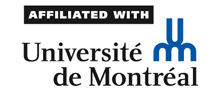By Kelly Rowe, Universitat Pompeu Fabra
What is the story?
Economic voting theory predicts that during a real or perceived economic downturn, people hold the incumbent government responsible for the bad economic situation and punish it by casting a vote for an opposition party. However, it is also said that, under similar circumstances, people are too concerned with holding ‘body and soul’ together to be bothered to vote. Economic downturns are thus also associated with low turnout rates.
In a recent article, I show that these two theories can be linked together to better understand patterns of voting behaviour in times of economic crisis. In particular, I argue that whether people decide to abstain or to punish the incumbent parties depends on the electoral offer, or in other words, on the existence of viable opposition parties.
Evidence from the OECD
In this article, I first analyze the turnout rate at the last national election held before the start of the 2008 economic crisis and the one that immediately followed 2008 in 34 OECD countries. The differences in turnout between the two elections are disclosed in Figure 1. I then run regressions predicting this difference by a series of independent variables, among which the effective number of parliamentary parties at the second election covered. Regression results show the greater the number of parties the more positive the turnout difference. This suggests that individuals in countries with more parties are mobilized by the economic crisis and use the opportunity of having more parties/alternatives to vote against the incumbent and express an economic vote. In contrast, citizens in countries with fewer viable parties abstain and fail to express an economic vote.
Evidence from Spain
To confirm this finding, I also analyze post-election survey data from the 2011 national election in Spain, ie. the first one after the start of the economic crisis. Spain has been one of the countries most badly hurt by the economic crisis, which makes its study particularly interesting. I run multinomial regressions predicting a vote for the incumbent, for an opposition party, or abstention. Here, the key independent variables are to what degree the respondents believe the incumbent government is responsible for the economic crisis and the number of viable parties in the respondent’s district.
Results show that economic voting did indeed take place in Spain in the 2011 election; the more respondents hold the incumbent government responsible for the economic crisis, the more likely they are to vote for an opposition party (see Figure 2). Furthermore, this probability increases with the number of viable parties in the respondent’s district. We can also see in Figure 2 that those who blame the government for the economic crisis are the most likely to abstain. However, this likelihood diminishes as the number of viable parties increases. From this we can infer that combination of incumbent blame attribution and the number of viable parties is necessary for voicing an economic vote versus not voicing one.
Concluding remarks
The relationship between the state of the economy and electoral choice depends on the number of parties or the choices available to voters at the district level. If there are no options available for a citizen who is disappointed with the government’s management of the economy, she will likely abstain – and thereby weaken the effect of the economy on electoral results. On the other hand, if there are viable opposition parties, she will likely vote for one of those parties – thereby strengthening the effect of the economy.. Put simply, parties matter for the economic voting voice to count.
For more details, see Rowe, Kelly T. (2013). “Making Voice Count: Economic Voting and the Number of Parties.” Party Politics, published online.
